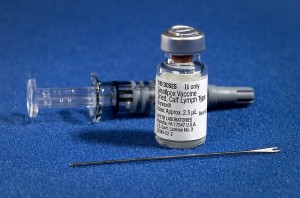A renowned and tenured Harvard Psychologist is receiving a bit of backlash for his claims regarding Attention Deficit Hyperactivity Disorder, also known as ADHD. That said, since the psychologist hails from one of the top universities in the country and is regarded as a one of the most eminent psychologists of the 20th century, the theory deserves some recognition.
ADHD doesn’t exist… Jerome Kagan is a world renowned psychologist and professor from Harvard University. Kagan is making claims that Attention Deficit Hyperactive Disorder (ADHD) is purely an invented disorder. He doesn’t that it doesn’t exist.
Kagan’s disapproval of the recognition of ADHD as a real disorder lies largely with the pharmaceutical companies and the doctors who carelessly make the diagnosis. He believes that children who are simply misbehaving are misdiagnosed with ADHD.
Kagan believes the diagnosis are all too often made without proper investigation of symptoms and circumstances of the child. When a diagnosis is made, they are given Ritalin, which is a mind-altering drug.
Without fear of widespread disapproval, Kagan has been speaking out on what he believes is wrong. He said, “(ADHD) is an invention. Every child who’s not doing well in school is sent to see a pediatrician, and the pediatrician says: ‘It’s ADHD; here’s Ritalin. In fact, 90 percent of these 5.4 million (ADHD-diagnosed) kids don’t have an abnormal dopamine metabolism. The problem is, if a drug is available to doctors, they’ll make the corresponding diagnosis.”
A lot of doctors and fellow psychologists have spoken out against Kagan’s claims, and he has tried to be discredited. However, Kagan is considered the 20th most eminent psychologist of the 20th century. He even appears before the infamous Carl Jung who came in at 23rd. He knows what he’s talking about.
The biggest problem is big pharma. Kagan believes that pharmaceutical companies are wrongfully profiting from the misdiagnosis and improper medication of children. Doctors are profiting as well. Physicians can benefit from the promotion of prescription of certain drugs.
Doctors can make hundreds of thousands of dollars from the pharmaceutical companies. This of course gives them motive to misdiagnosis for the added monetary incentive. Kagan openly condemns this as corrupt and immoral.
The other people who profit from what he believes is a made up condition are his fellow psychologists and psychiatrists who are given money to research ADHD. The research is done because of the over diagnosis over-prescription problems.
Since children are prone to unpredictability it is especially important to be thorough when diagnosing and prescribing them. Kagan also believes misdiagnosis bleeds into other mental health illness as well. Often one symptom isn’t enough to properly diagnose and a rushed diagnosis leads to misdiagnosis and improper treatment.
ADHD seems to only be labeled to kids who are not doing well in school. Kagan presents the option of tutoring to see if school performance improves, before turning to prescription drugs and latching onto, what he believes, is a hoax.
According to the Center for Disease Control, in 2011 approximately 11% of children between the ages of 4-17 had been diagnosed with ADHD. That’s around 6.4 million of children. Most of whom do not even display the unbalance.
So what are the answers? This problems spans into multiple areas within the mental health field. Kagan believes that mental health professionals should be held accountable and be more diligent when it comes to making diagnoses. There needs to be a focus on causes as well as symptoms to properly find the root of the problem and the appropriate course of action.
Especially for children, who can have trouble when it comes to describing what they are experiencing and accurately explaining their symptoms. Psychologists and Physicians must remain diligent and careful to make sure they are not part of the problem.
His colleagues criticism stems largely from believing he is writing off all mental illness as a hoax. Kagan further explains his position, “There are mentally ill people who need help. A person who buys two cars in a single day and the next day is unable to get out of bed has a bipolar disorder…There are people who, either for prenatal or inherited reasons, have serious vulnerabilities in their central nervous system that predispose them to schizophrenia, bipolar disease, social anxiety or obsessive-compulsive disorders. We should distinguish these people…”
Whether you believe in the authenticity of ADHD or not, I think most people can behind the idea of holding physicians accountable for misdiagnosis and prompting them to do better– to research better, especially when it comes to children.
https://www.rebelcircus.com/blog/turns-out-adhd-doesnt-really-exist-according-to-harvard-psychologist

